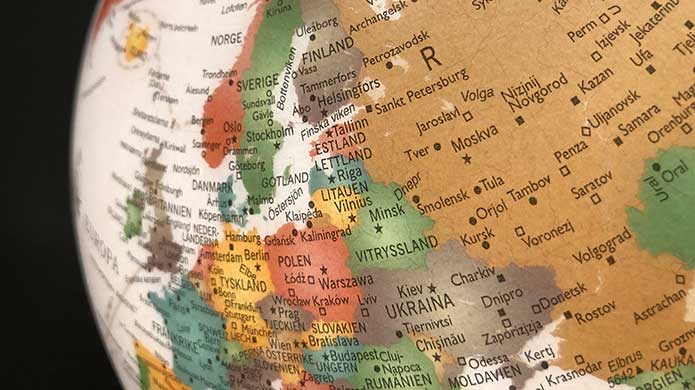CBEES Annual Conference 2023: The war and its effects
The Centre for Baltic and East European Studies will be hosting its annual conference on 23-24 November, and once again it will be taking place under the shadow of war. Both the research field and individual researchers have been tangibly affected by the conflict; the conference will focus on the reality of this.

Europe has not experienced a war like Russia’s full-scale invasion of Ukraine since World War Two. People are being killed, communities destroyed, cultural and ecological treasures laid waste. The war has also significantly affected global and regional conditions. The security situation has changed, generating an almost existential anxiety about the state of global economy and democracy.
The theme of this year’s conference is the war and its effects. How do these changing circumstances affect the region’s future? What will the consequences be for democracy, society, humanity, culture and, not least, the climate? What does history say, can we learn anything from the effects of previous wars?
Keynote speakers:
Tatiana Zhurzhenko: “War, displacement, and transnationalization of Ukrainian society: Why it will be different from the “Russian world” – and from the post-WWII Ukrainian diaspora
Tatiana Zhurzhenko has a solid career in research and has worked at the University of Vienna since 2002. In her keynote, she will discuss how the Russian invasion has affected Ukrainian society. Families are being broken up, millions of people have been forced to leave the country, and a strongly politicised diaspora is developing. People are now experiencing other countries’ welfare systems and labour markets. They are learning new languages, building networks and collecting social capital. This globalisation of Ukrainian society, an increased transnationalism, is creating a new “Ukrainian world”. Why and how does this new world differ from the post-imperial and nostalgic “Russian world” created by the Putin regime? And how does this contemporary diaspora differ from the one created after World War Two?
Andreas Umland: Why the War Cannot Easily End: Six Hindrances for a Russian-Ukrainian Truce
Andreas Umland, analyst at the Stockholm Centre for Eastern European Studies has long experience of studying Ukrainian domestic policies, Eastern European geopolitics and nationalism. He will talk about the conditions for a ceasefire and peace negotiations, negotiations that Umland says can only start at a point when Moscow has either lost all the occupied territory or when they are prepared to discuss the forms of a Russian retreat from these territories. The point of departure for this discussion is what he sees that the six biggest barriers to a ceasefire, among which he lists the countries’ constitutions, Crimea’s links to the Ukrainian mainland and historical experiences.
The Centre for Baltic and East European Studies at Södertörn University has been a hub for multidisciplinary research about the Baltic Sea region and Eastern Europe since 2005. The centre publishes the State of the Region report series, the Baltic Worlds scholarly journal and is now organising the ninth CBEES Annual Conference.
For more information visit Södertörn University calendar External link.
External link.
Contact and questions: confcbees@sh.se
Page updated
20-11-2023

